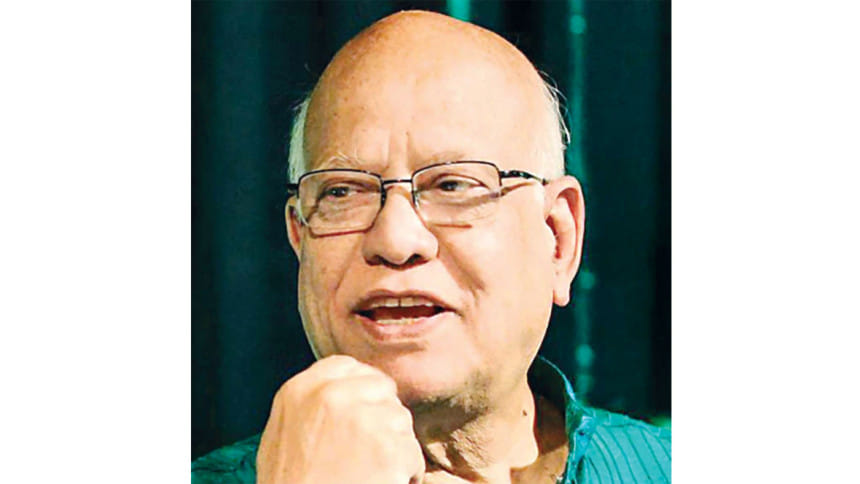AMA Muhith: a defining character

Abul Maal Abdul Muhith, the former finance minister of Bangladesh, and more importantly, one of the architects of Bangladesh's economic development, left an undeniable legacy upon his passing, more than two years ago.
He assumed the office of finance minister in 2009 amidst a challenging global economic downturn. His tenure was instrumental in steering the country through a remarkable transformation, transitioning it from a state of food deficit, poverty, and vulnerability to its status as a lower-middle-income country.
Muhith's approach to governance was characterised by forward-thinking, and a commitment to progress. He recognised the importance of collaboration between the public and private sectors in driving infrastructure development.
During his tenure, the public-private partnership received its first budget allocation in 2009-10, marking a significant milestone in Bangladesh's approach to infrastructure financing and delivery.
He pioneered the introduction of district budgeting, recognising the need for decentralised decision-making and resource allocation. The district budget system was inaugurated in 2013-14, starting with Tangail. This initiative aimed to enhance local governance, empower communities, and ensure equitable distribution of resources across regions.
In 2015-16, Muhith launched Bangladesh's first-ever child budget, highlighting the government's commitment to investing in the well-being and development of the youth. This dedicated budget allocation aimed to address the specific needs and challenges faced by children, including education, healthcare, and social protection.
Recognising the importance of social security and welfare, he championed the concept of a universal pension scheme. Beginning work on this initiative in 2015-16, he spearheaded efforts to develop a comprehensive framework to provide financial security to retirees and vulnerable populations. A position paper was prepared to outline the rationale and feasibility of the scheme.
Even though his tenure as finance minister concluded after a decade of service, the economic foundations he established continued to propel Bangladesh forward on its journey towards greater prosperity and development despite some challenges in recent times.
Muhith's contributions to Bangladesh's independence movement will forever be etched in the annals of history. As an organiser of the liberation war in exile, he played a pivotal role in mobilising support for the cause and preserving the nation's sovereignty.
An environmental activist at heart, he recognised the urgent need for sustainable development and environmental conservation. His advocacy for eco-friendly policies and initiatives underscored his holistic approach to nation-building, ensuring that economic growth was harmonised with ecological preservation.
One of Muhith's remarkable abilities was his exceptional memory, allowing him to recall events and details from decades ago. This cognitive prowess not only facilitated his work but also enabled him to provide valuable insights and perspectives.
A voracious reader and a man who could delve deep into any subject, his intellectual curiosity knew no bounds. His keen insights and scholarly pursuits enriched the discourse on various topics, while his global view of affairs allowed him to navigate the complexities of international relations.
From a more personal perspective, I fondly recall that Muhith held PwC in high esteem, inaugurating its first Bangladesh office in 2016 and recognising the firm's importance in shaping the country's economic landscape.
There was an instance wherein he had noted that the front cover page of PwC's Bangladesh budget recommendation publication consisted of non-local individuals as models. He immediately requested that we change that to include Bangladeshi individuals instead. This exemplified his unwavering patriotism and attention to detail.
Whether analysing complex financial data or crafting policy proposals, Muhith ensured that no detail was overlooked, contributing to the effectiveness and efficiency of his work.
Above all, Muhith will be remembered as a tolerant politician, a knowledge-seeking individual and a defining character for his fellow colleagues.
The author is an economic analyst.

 For all latest news, follow The Daily Star's Google News channel.
For all latest news, follow The Daily Star's Google News channel. 



Comments